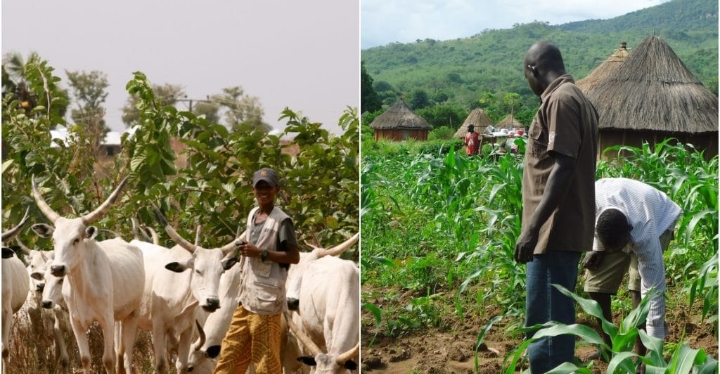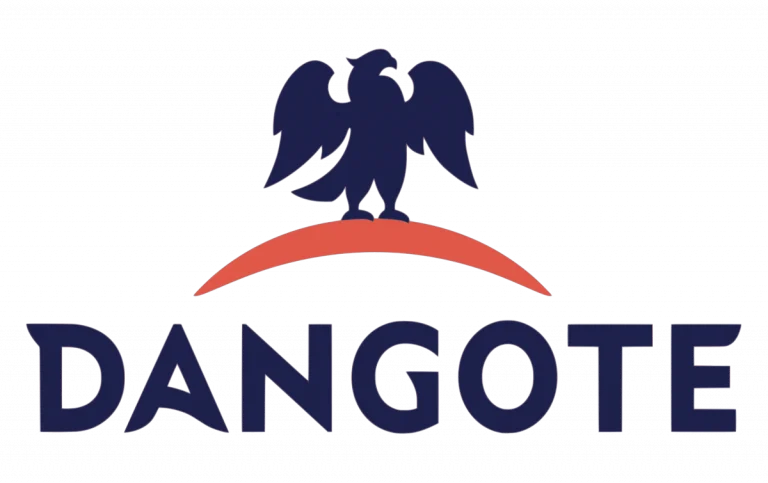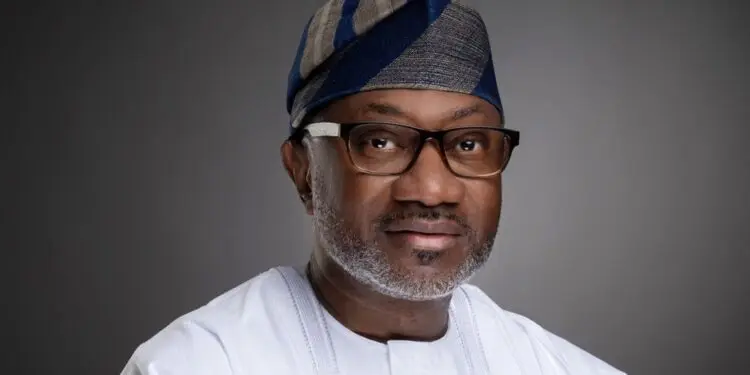Business
Farmers-herders Crisis Costing Nigeria $14bn In Losses Annually – Buhari’s Aide

Senior Special Assistant to the President on Agriculture, Dr. Andrew Kwasari has said Nigeria loses about $14 billion annually to the incessant conflicts between farmers and herders.
Kwasari revealed this in Abuja on Tuesday during his presentation at the Summit on National Livestock Transformation Plan (NLTP) with the theme: “Positioning The Nigerian Livestock Sector For 21st Century Economy, “jointly organised by the Federal Ministry of Agriculture and Rural Development and Agriculture Correspondents Association of Nigeria (ACAN).
To resolve the lingering crises between farmers and herders as well as reposition the livestock sector in the country, Kwasari, said the Federal Government in collaboration with states have begun the implementation of the National Livestock Transformation Plan (NLTP)2019–2028.
He noted that already 22 States have sent letters of expression of interest to the office of the Chairman of the National Economic Council and Vice President, Prof. Yemi Osinbajo, adding that 10 States have set up the States Livestock Transformation Office.
As part of the implementation strategy, he said four states have identified and mapped out the gazetted grazing reserves in their domain as well as taken off the implementation of the NLTP in earnest.
These states, according to him, include Nasarawa, Plateau, Adamawa and Kaduna.
READ ALSO: 2023 Will Determine Nigeria’s Progress, Restoration Say Saraki, Gov Udom
Also speaking, Dr. Mohammad Mahmood Abubakar, Minister of Agriculture and Rural Development, explained that the two-day Summit was organised with the aim of enlightening stakeholders, investors and the general public on the inherent investment opportunities that abound in the livestock sub-sector, dispelling misconceptions about the real intentions of Government for initiating the National Livestock Transformation Plan (NLTP) and to stimulate active participation of Nigerians to reap the full benefits of NLTP in the short, medium and long terms
Abubakar pointed out that the bulk of the Nigerian labour force is engaged in various forms of agricultural enterprises especially along the livestock value chain with over 30% of women and young adults depending largely on livestock for their income, livelihoods and sustenance, adding that the livestock sector remains a major component of the agricultural economy and plays a significant role in the overall national economy.
He revealed that the livestock sector accounts for about 2-5% of the National Gross Domestic Product(GDP) and 10% of the Agricultural GDP.
He said: “Recent estimates show that the livestock sector is endowed with abundant livestock resources with about 26.4 million cattle, 88.2 million goats, 50.3 million sheep, 8.9 million pigs, 465 million chickens, 36.4 million ducks, 3.8 million turkeys, 5.5 Rabbits, 353,173 camels, and 1,234,284 donkeys (FMARD 2021), thus making the nation the topmost livestock producer in West Africa”.
Business
NNPCL Announces Restoration Of Escravos-Lagos Pipeline

The Nigerian National Petroleum Company Limited (NNPCL) has announced the complete restoration of the Escravos-Lagos Pipeline System (ELPS) in Warri, Delta State, following the recent explosion on the asset.
The chief corporate communications officer (CCCO) of the nation’s oil company, Andy Odeh, in a statement, said that the pipeline is fully operational, reiterating the company’s resilience and commitment to energy security.
“NNPC Limited is pleased to announce the successful restoration of the Escravos-Lagos Pipeline System (ELPS) in Warri, Delta State.
READ ALSO:Fuel Price Cut: NNPCL GCEO Ojulari Reveals Biggest Beneficiaries
“Following the unexpected explosion on December 10, 2025, we immediately activated our emergency response, deployed coordinated containment measures, and worked tirelessly with multidisciplinary teams to ensure the damaged section was repaired, pressure-tested, and safely recommissioned.
“Today, the pipeline is fully operational, reaffirming our resilience and commitment to energy security. This achievement was made possible through the unwavering support of our host communities, the guidance of regulators, the vigilance of security agencies, and the dedication of our partners and staff.
“Together, we turned a challenging moment into a success story, restoring operations in record time while upholding the highest standards of safety and environmental stewardship.
“As we move forward, NNPC Limited remains steadfast in its pledge to protect our environment, safeguard our communities, and maintain the integrity and reliability of our assets. Thank you for your trust as we continue to power progress for Nigeria and beyond,” the statement read.
Business
Dangote Unveils 10-day Credit Facility For Petrol Station Owners

The Dangote Group has announced a 10-day credit facility backed by a bank guarantee for petrol station owners and dealers, alongside free direct delivery and other incentives, as part of a new supply arrangement.
The company disclosed this in a statement posted on its official X handle on Tuesday, inviting petrol station operators across the country to register to benefit from the offer.
According to the statement, participating dealers will enjoy “a 10-day credit facility backed by a bank guarantee,” with a minimum order requirement of 5,000 litres.
“Our free direct delivery service will commence soon,” the group said, adding that the offer is open to “all petrol station owners and dealers.”
READ ALSO:Dangote Sugar Announces South New CEO
The Dangote Group further called on operators to register their stations to access the supply arrangement.
“Register your petrol stations today to benefit from our competitive gantry price,” the statement read.
The company also disclosed that petrol supplied under the arrangement will be sold at a gantry price of ₦699 per litre.
For enquiries, the group provided the following contact numbers: 0802-347-0470, 0809-324-7070, 0809-324-7071 and 0203.
READ ALSO:Dangote Refinery Dispute: PENGASSAN Suspends Strike After FG Intervention
The announcement follows a recent petrol price adjustment by the Dangote Petroleum Refinery.
The PUNCH earlier reported that the refinery reduced its ex-depot petrol price from ₦828 to ₦699 per litre, representing a ₦129 cut or a 15.58 per cent reduction.
An official of the refinery, who spoke to PUNCH Online on condition of anonymity, confirmed the adjustment, saying, “The refinery has reduced petrol gantry price to ₦699 per litre.”
The new price reportedly took effect on December 11, 2025, marking the 20th petrol price adjustment announced by the refinery this year.
Business
JUST IN: Otedola Sells Shares In Geregu Power For N1trn

Billionaire businessman, Femi Otedola, has sold his majority stake in Geregu Power Plc for N1.088 trillion in a deal financed by a consortium of banks led by Zenith Bank Plc.
The Nigerian Exchange, NGX, made this announcement on Monday.
Otedola’s Amperion Power Distribution Company Ltd reportedly held nearly 80 percent of the power generating company.
READ ALSO:N200b Agric Credit Dispute: Appeal Court Slams NAIC, Upholds First Bank Victory
With this new development, Otedola, Chairman of First Holdco Ltd, parent company of First Bank of Nigeria Plc, will reportedly now concentrate on expanding his interest in the Nigerian banking sector, although he still retains some shares in Geregu.
Otedola is said to currently own 17.01 percent of First Bank — its single largest shareholder since the bank was established in 1894.

 News4 days ago
News4 days agoBREAKING: Anthony Joshua Involved In Road Accident

 Politics4 days ago
Politics4 days agoYou’re Not 001 – Wike Rubbishes Claims Of Fubara Being APC Leader In Rivers

 Politics4 days ago
Politics4 days agoWike Speaks On Defecting To APC

 Politics4 days ago
Politics4 days agoJUST IN: INEC Excludes PDP From Ekiti Governorship Election

 News4 days ago
News4 days agoDoris Ogala: How Pastor Chris Knelt Before Church, Begged For Forgiveness [Video]

 News4 days ago
News4 days agoNAF Neutralizes Bandits At Turba Hill, Kachalla Dogo Sule Camps

 Politics4 days ago
Politics4 days agoGo To Hell, You Didn’t Pay My School Fees – Wike Hits Seyi Makinde

 News4 days ago
News4 days agoNigerian Army Finally Reveals Details Of US Military-led Airstrikes In Sokoto

 News4 days ago
News4 days agoOPINION: Trump Must Finish What He Started

 Metro4 days ago
Metro4 days agoJUST IN: Court Orders Remand Of Ex-AGF Malami, Son, Wife In Kuje Prison
























